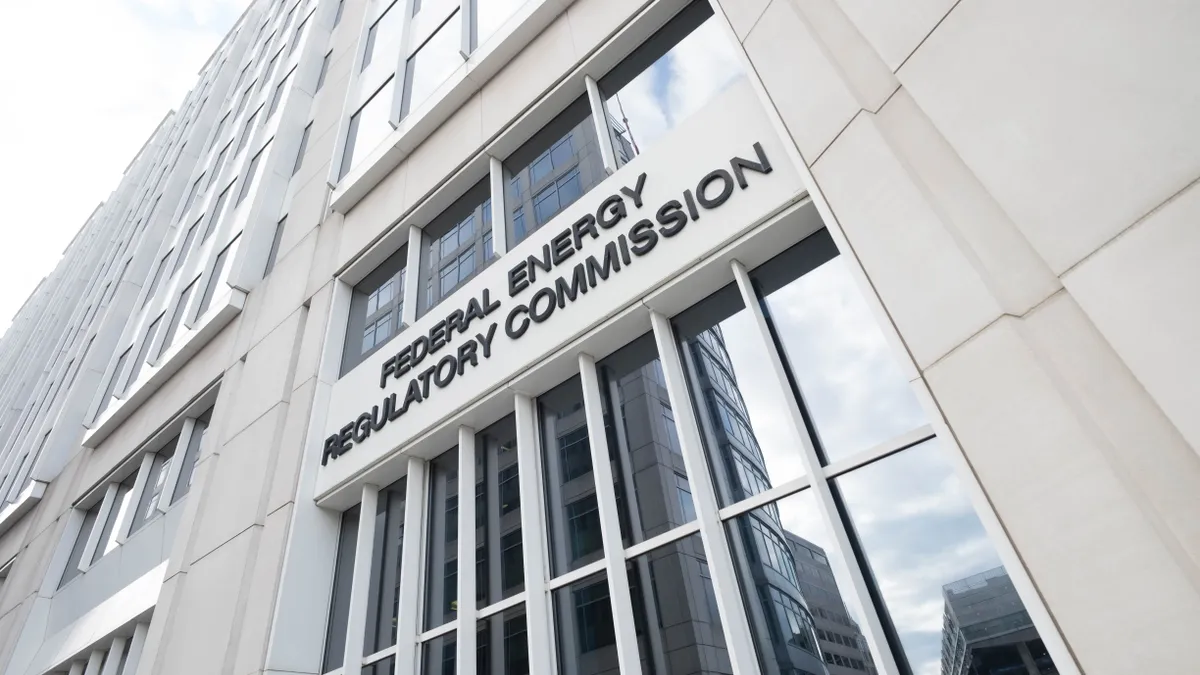Dive Brief:
- The Federal Energy Regulatory Commission on Thursday issued a Notice of Inquiry (NOI) seeking comment on its evaluation process for interstate natural gas pipelines, as well as a new order reforming generation interconnection processes.
- The NOI seeks comment on how FERC evaluates the need for pipelines, its use of eminent domain, the environmental impact of pipeline projects and the efficiency of FERC's permitting process. Chairman Kevin McIntyre called for the pipeline review at FERC's Dec. 2017 meeting.
- The interconnection order includes a number of reforms aimed at making the process more transparent and efficient for generation owners and utilities. The order would also benefit energy storage by classifying it as a large-scale generator for interconnection and authorizing generation resources in an interconnection queue to add storage without losing their spot.
Dive Insight:
The new NOI on pipeline approvals is FERC's first review of that process since its current policies were put into place in 1999.
Currently, FERC judges pipeline need based on precedent agreements — contracts for pipeline capacity signed by companies before the project is approved. The two Democratic members of FERC have called that into question in recent months, particularly the practice of allowing affiliates of pipeline builders to enter into the agreements.
FERC should expand its evaluation of pipeline necessity to include "evidence of the specific end use of the delivered gas" from a proposed pipeline, Commissioner Cheryl LaFleur wrote in a dissent to the Atlantic Coast Pipeline approval last year.
Commissioner Richard Glick echoed that sentiment in his dissent on the PennEast project, writing in January that presence of "precedent agreements that are in significant part between the pipeline developer and its affiliates is insufficient to carry the developer’s burden to show that the pipeline is needed."
At the meeting, LaFleur asked stakeholders for comment on alternatives to the current model. If not precedent agreements, she said, "what do we want companies to submit?"
LaFleur also called for comment on whether FERC should continue to review pipeline applications individually or assess market need on a regional basis. It's a concern she also raised in her Atlantic Coast dissent.
Not all commissioners want a change in the policy. The Republican majority at FERC has consistently voted to approve pipeline projects under current rules since the agency's quorum was restored last year, and at Thursday's FERC meeting they sought to reassure the gas sector that they are not looking to overhaul the approval process.
"We don't build pipelines in this country on speculation," Commissioner Robert Powelson said. That's a "damn good thing for consumers."
The commissioners also split on party lines regarding the environmental impacts of pipeline approvals. Earlier this year, when the D.C. Circuit Court made FERC rewrite an environmental impact statement (EIS) for a Florida pipeline project, the Republican majority at the commission concluded the climate impacts could not be calculated.
"Commission staff ... could not reach a finding whether downstream GHG emissions are significant," the majority wrote.
The two Democratic members dissented, writing that FERC has a responsibility to make a judgment about the climate risks. The issue is likely to be a divisive one throughout the pipeline review, as LaFleur called for comment on the "upstream and downstream greenhouse gases," as well as, "how or whether we use the social cost of carbon in our dockets."













